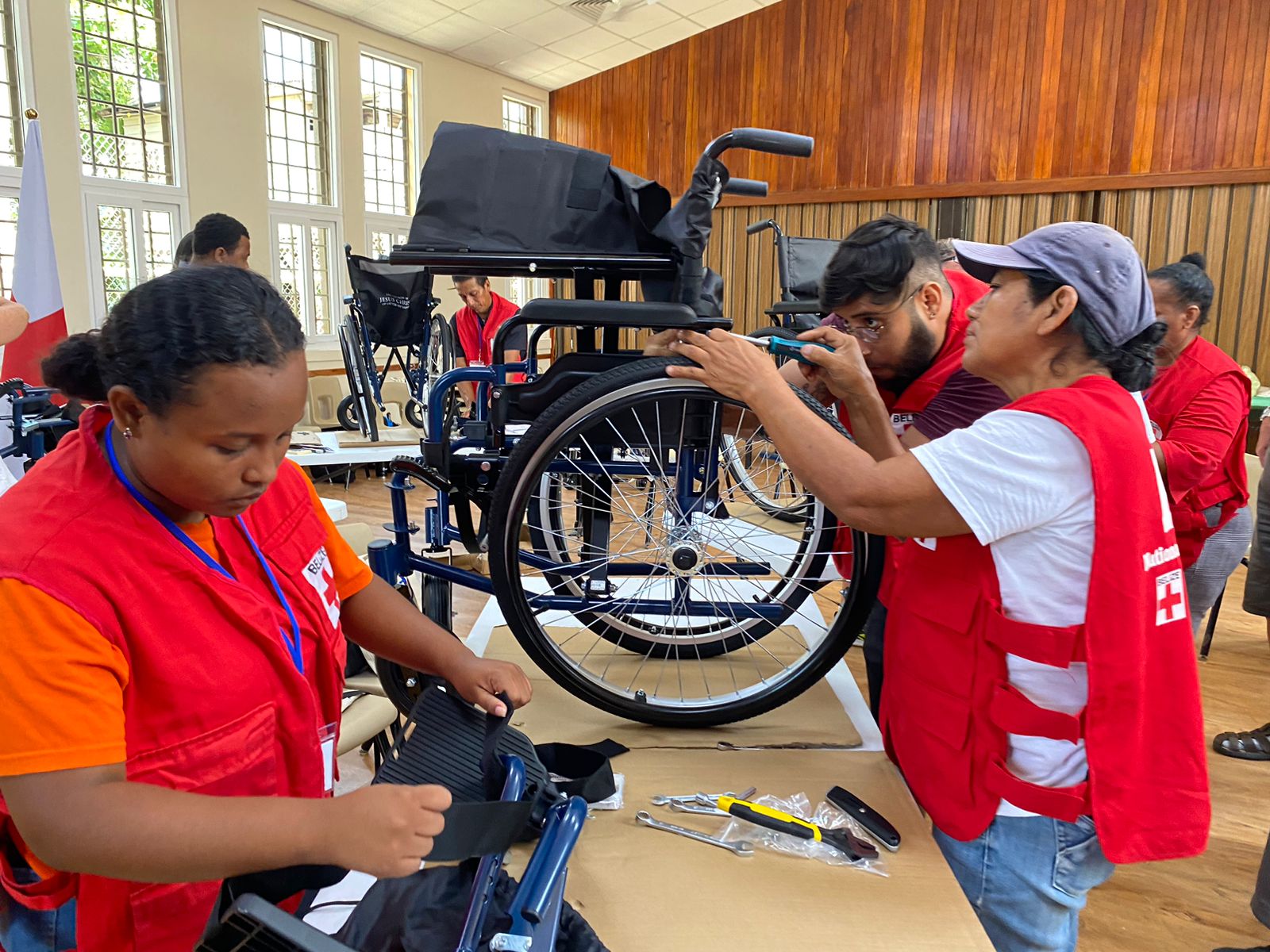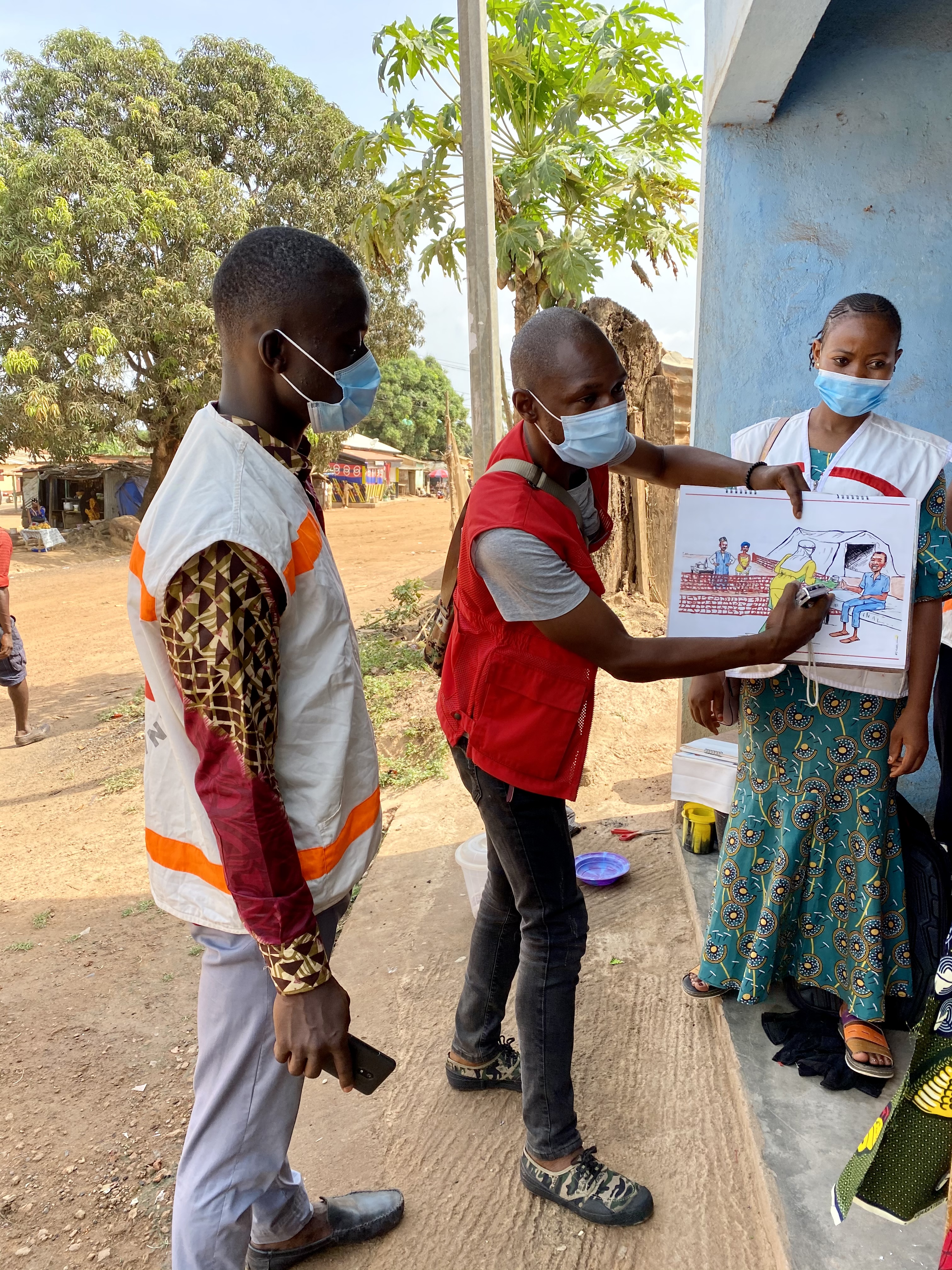Guaranteeing an effective needs-based and people-centred approach through the Global Europe mid-term review
Around the globe, local actors and civil society are essential in responding to humanitarian and development needs. More than ever before, recent years have demonstrated the value of local capacity to face the crises faced worldwide. Civil Society Organisation (CSOs) – and other local and national actors such as National Red Cross and Red Crescent Societies – are working to include, protect and engage individuals, families and communities. They are helping them develop their knowledge and capacities to find local solutions to their challenges, contributing to long-term development. Community engagement and accountability and a tangible people-centred approach should be at the core of EU external cooperation. It is therefore essential to ensure a higher degree of CSO participation and engagement in the decision-making, implementation and monitoring phases of all humanitarian and development programmes.
Under its Multi-annual Financial Framework 2021-2027, the EU has setup the Neighbourhood, Development and International Cooperation Instrument (commonly called Global Europe) to support its action worldwide. It is based on three pillars: geographic programmes, thematic programmes and rapid response actions. To review and adjust priorities and spending, a mid-term review of Global Europe programming has been launched and should be concluded by the spring of 2024. In context of this review, and in particular the geographic pillar, the Red Cross EU Office and its members are engaging with the European Commission, European Delegations around the world, as well as EU Member States and their embassies, to ensure increased support for the people who are most in need and Global Europe programming that leaves no one behind.

To make fundamental changes and ensure long-term prospects, communities should be prepared to absorb potential shocks and crises and have the necessary capacities to adapt and enable resilience mechanisms. Crises are complex, and communities are diverse, so it is crucial to approach challenges from a local perspective and ensure that the most acute needs are addressed and prevented in the long run. In the implementation of Global Europe programmes, a greater degree of localisation through long-term investment and structured engagement with local CSOs is crucial. This should enable context-based and bottom-up solutions, where local communities and organisations can prepare, coordinate and improve systems to become more resilient and reduce the impacts of crises. Furthermore, community-based resilience work, such as the provision of essential services, disaster preparedness and reinforced protection at local level, often involves inclusive approaches that contribute to managing and dissipating local tensions.
To reach the Global Europe instrument’s objectives of supporting countries most in need to overcome long-term development challenges and of contributing to achieving the EU’s international commitments, a stronger focus must be placed on localisation. Greater emphasis on providing direct support to communities, local actors and CSOs under thematic priorities at national and regional levels is needed, instead of mainly supporting engagement with the private sector and striving to attract investments in partner countries.

In the face of the proliferation of epidemics and growing health inequalities, the EU should improve equitable and effective access to quality health and care services for all, including mental health and sexual and reproductive health. This requires greater investments in community health systems, as well as the workforce and other relevant health actors to increase sustainability. To reinforce decentralised health structures and strengthen resilience, more efforts are needed in the promotion of healthy habits, capacity building, risk communication, prevention and preparedness, and surveillance and tracing.
With the growing impacts of climate change disproportionately affecting the world’s most vulnerable communities, the EU’s external action should increase engagement on adaptation, prevention and preparedness for climate-induced disasters, including by building Early warning systems and anticipatory actions. Investing in systems and improved forecasting services can save lives, and if connected to longer-term development perspectives, can also save livelihoods. It is key to ensure that all countries are better able to withstand shocks without reinforcing existing inequalities and vulnerabilities.
Now is a key moment for the EU to consider these priorities and ensure the necessary support through the mid-term review of the Global Europe Instrument.
Around the world, the IFRC and its 191 National Red Cross Red Crescent Societies engage with the people most impacted by global challenges and help to address their most pressing needs, reaching people effectively and in a non-discriminatory and equitable manner. Through their permanent presence in countries, the IFRC network helps to break silos between short and long-term goals and act effectively at local, national and global levels.
For media inquiries, please contact Eva Oyón on: eva.oyon@redcross.eu or +32 2 235 09 22

